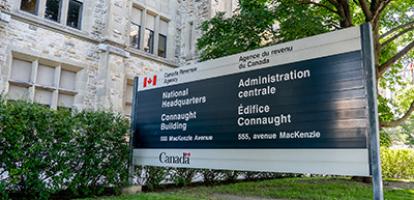From: Ken Boessenkool and Noah Zon
To: Federal and Provincial Ministers of Finance and Labour
Date: November 4, 2020
Re: Are We Doing Enough to Help Parents Weather the COVID Storm?
The current crisis has had an outsized impact on women with young children. While men with young children have largely recovered their hours of work since the beginning of the pandemic, women with young children have not.
It’s not hard to understand why. Even with re-opened schools and childcare, many families are keeping their kids at home. While online learning is less than ideal, many parents are dissatisfied with the level of safety. And even those sending kids to school or childcare lose weeks of work to isolation and tests because of illness or exposure.
As the pandemic drags out, female labour force attachment will become an even bigger issue. Yet none of our employment standards or parental leave insurance plans recognize care needs for children over 18 months, unless they are critically ill. As a result, except for those with compassionate employers, parents can’t take extended job-protected leave to respond to this situation: they have to quit.
The best option would let parents keep working and also have safe school and care options for their kids. But those options are increasingly unreliable and will get more so under a prolonged second wave. We need to be alert to the long-term economic harm caused by long periods of forced joblessness. As it stands, many parents (mostly women) have no option other than a one-way ticket out of the labour force. Policy that shortens that trip and assists with the return ticket should be seen as economic and gender equity harm reduction.
We see four areas of policy that may need more attention to reduce that long-term harm. These are immediate, short-term and COVID-specific policy choices that may not be on the table in normal times but may be the right choice today.
Targeted income support: The federal government has acknowledged the need for temporary income support for families with its Canada Recovery Caregiving Benefit (CRCB). CRCB provides weekly benefits of $500 for up to 26 total weeks for one parent to take a leave to care for a child under 12 if their school or childcare facility is unavailable or they face risks due to COVID itself. This is an innovative program, but is it adequate for families navigating without in-person school or childcare for a full school year?
A temporary COVID parental leave benefit could provide some income replacement for up to a year while maintaining connections – like health and disability benefits – with employers. As much as possible, a COVID parental leave should encourage balanced leave choices between moms and dads – just because women are bearing the brunt of the impact today does not mean we should accept it as inevitable. The CRCB finds this balance by allowing either parent to apply for the benefit, for example.
An approach sensitive to regional COVID severity would be preferable, but runs up against the longer-term nature of what we are proposing.
Employment standards: To keep parents connected to employers, additional leave should be paired with updates to federal and provincial employment standards to allow longer job-protected leave for parents with kids up to 12. A temporary COVID response should allow parents to keep as much connection to work as possible.
Part-time leave: Both income support and employment standards for COVID parental leave should encourage part-time work. Eligibility rules in standard parental leave policies in Canada make this nearly impossible (and that should change, too). Beyond earnings exemptions, more proactive measures could include wage subsidies for part-time working parents, enhanced work sharing policies, and remote/asynchronous paid work opportunities for people on leave to support public interest initiatives like contact tracing.
Return to work: A portable wage subsidy for parents who have been away from the workforce would encourage their re-hiring as impacts of the pandemic wind down. The wind down of temporary benefits must also be done in a way that doesn’t inhibit the return to work.
The federal finance minister recently spoke about limiting the economic scarring of the COVID recession. Having barely caught their breath as the first wave receded, the second COVID wave threatens to completely engulf a generation of families with young children.
Pandemic parental leave is neither the best-case scenario nor would it work for all families. There are risks of unintended consequences. After all, we would not want to unintentionally accelerate the exit of moms from the labour force and amplify the gender wage gap. But we urgently need ideas to minimize the economic harm to Canada’s families, particularly moms.
Ken Boessenkool is McConnell Professor of Practise at the Max Bell School of Public Policy at McGill and Research Fellow at the C.D. Howe Institute and Noah Zon is the co-founder and Principal of Springboard Policy.
To send a comment or leave feedback, email us at blog@cdhowe.org.
The views expressed here are those of the authors. The C.D. Howe Institute does not take corporate positions on policy matters.





